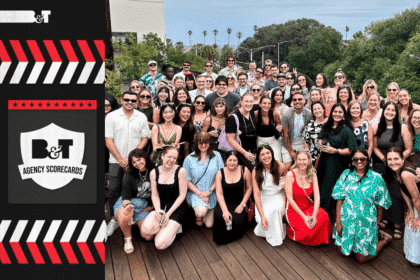The head of consumer marketing at telco Optus said that there is a growing chasm between the service media agencies provide and what marketers need. At yesterday’s MFA Ex conference in Sydney, Luby offered five tips to help close the gap.
One of Australia’s leading communications strategist turned marketer, Cam Luby, is concerned that there is a divide between media agencies, creative agencies and marketers. The head of consumer marketing at Optus should know.
He spent half of his career agency side, holding senior roles at UM, Mindshare and Goodby, Silverstein & Partners before jumping client side to Google, where he worked for nearly a decade in various senior marcomms roles in the US before returning to Australia as its marketing director of apps and platforms.
In 2022, Luby joined Optus as a senior director of brand marketing before becoming head of consumer marketing 18 months ago.
Since working client side, Luby said he has observed many of the mistakes he once made when working in an agency.
“There is a chasm, a big gap of knowledge and understanding that exists between marketers and media agencies,” Luby said. “I think that the same gap exists between media agencies and creative agencies, and it certainly exists between creative agencies and marketers.
“I think if you want to be the change makers, like you say that you are, it’s about closing that gap.”
Here are Luby’s five tips for closing the gap.
1. Keep it simple.
Although it might sound like an obvious take for communications specialists, Luby said the industry is often guilty of overcomplicating how it presents solutions.
He explained that he spends only about 5 per cent of his – a couple of hours per week – on media, and if he has only an hour to wade through 50 slides on a powerpoint deck, his chances of understanding the key takeaway is really low.
“There’s a lot of times that you guys might sound really smart, but you’re not breaking through, so you’ve got to keep it really simple,” he said.
“There is nothing more impressive than someone who is confident, clear and is able to articulate their point quickly and succinctly. That’s something that the media agencies really need to start doing more of.”
Luby said there is no need to wait until the end of a presentation for the “ta-da” reveal, if you can “say what you need to say in three minutes”.
“It’s far better off being understood than it is to sound smart,” he added.
2. Be connectors, not traders
Luby’s second take away is that media agency partners should focus on bringing clients and media owners together rather than the ability to trade better media deals on behalf of clients.
He said a focus on negotiating better deals essentially commodities media and leads to a “race to the bottom mentality” that devalues the industry.
“Look for opportunities to bring partners and clients together to connect them and generate new and exciting ideas,” he said. “Bringing people together is incredibly valuable. You should leverage those relationships far more than you currently do.”
3. Hold the jazz hands
Getting the fundamentals right – making sure great advertising reaches the right people enough of the time – is what media agency partners should focus on first.
Luby recommends agencies spend 20 per cent of their time and 80 per cent of media budgets demonstrating that they are delivering on media performance for clients.
“Don’t come in with the big, exciting, new, flashy, different,” Luby said. “It’s about delivering the confidence that you know how to drive the business forward. It’s really hard for marketers to take a risk if you don’t have confidence that you’re going to deliver for the business.”
4. Learn to speak CFO
Luby said that one of the more challenging moments in his career is when he felt like the only marketer in the room.
Organisations he has previously worked at would sometimes question marketing budgets and even the value of marketing.
“This is where media metrics do not help at all. You cannot talk about reach or programming or whatever. Media metrics are a one way ticket to no one else in the organisation understanding,” he said.
Luby said that agencies need to work with MMM and provide marketers with the tools they need to have conversations about why they should be making investments in media. “If you don’t do that, it’s a one way ticket to the company divesting in marketing overall,” he said.
5. Don’t focus on being right
Luby said the media industry is “drowning in numbers, details, insights and data”, and there is often a tendency to always look for the right answer.
He said this is problematic for two reasons: firstly, the ‘right answer’ is probably one that several others are capable of providing and, secondly, it’s “probably going to be quite boring” and has been done before.
“Instead, there’s a lot of value in trying to be interesting. And if you try to be interesting, and you try to think of things in a new way and come at it from a different perspective, that’s going to encourage a lot of different kind of conversations,” he said. “It’s going to mean that you’re opening a door that you hasn’t opened before with your clients.”
He said being interesting or taking a different approach to a problem is often more valuable than always finding the right answer that has been done before.








